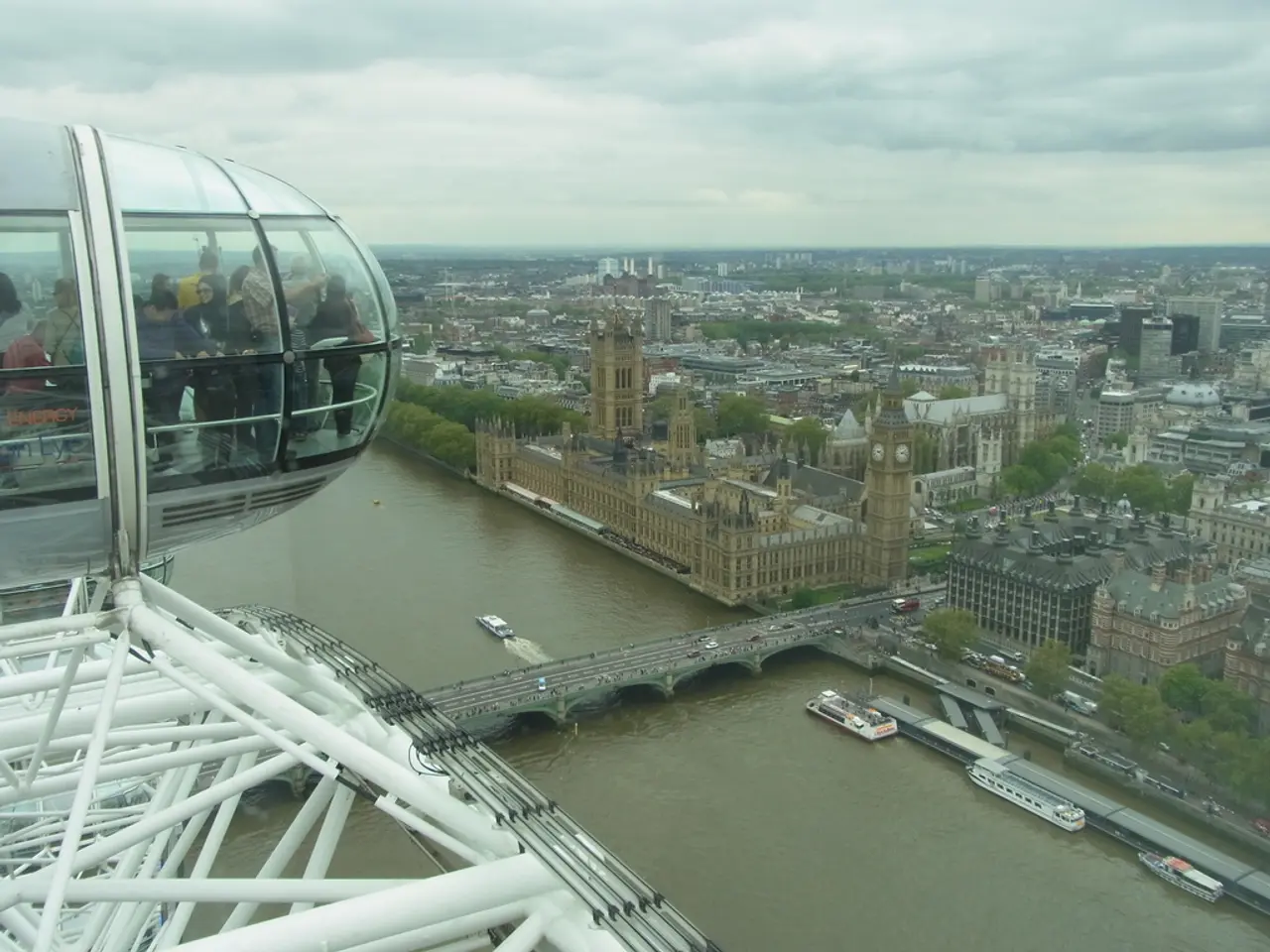Central economic concern: Bank of England elevates interest rates in response to struggle with inflation
The UK economy is currently grappling with a series of challenges, as inflation rates remain stubbornly high and mortgage costs for homeowners continue to surge.
According to the Institute for Fiscal Studies thinktank, nearly 1.4 million mortgage holders could see up to 20% of their disposable income erased by the surge in borrowing costs. This alarming forecast comes as the average interest rate on a two-year fixed residential mortgage has risen to 6.15%, according to figures from data provider Moneyfacts. The average two-year fixed rate deal for mortgages has even reached 6.19%.
The Bank of England has already raised interest rates to 5%, the highest in 15 years, in an effort to combat inflation. Financial markets are betting that the Bank will increase rates today by at least a quarter-point. This would be the central bank's 12th consecutive rate hike since December 2021.
Rishi Sunak, the Prime Minister of England and leader of the Conservative Party, pledged to halve inflation rates when he came into power towards the end of last year. However, inflation rates remain at 8.7%, as revealed by the Office for National Statistics (ONS). This is particularly concerning as 'core' inflation, which impacts upon energy and food costs, is at the highest rate since 1992, standing at 7.1%.
The high inflation rates are being influenced by a variety of factors, including the prices for air travel, recreational and cultural goods. The global banking sector is also showing signs of weakness, adding to the economic pressures.
Charles White Thomson, CEO at Saxo UK, has commented that the UK is in an economic danger zone and losing the war against inflation. Douglas Grant, Group CEO at Manx Financial Group PLC, has expressed similar concerns about the stubbornly high inflation figures and the challenges businesses are facing.
Alex Livingstone, Head of Trading & FX at Titan Asset Management, commented on the Bank of England's decision to raise rates by 0.5%. The government is facing growing pressure to intervene to help households facing higher mortgage payments. SMEs must review their existing lending structures to keep ahead of the economic challenges.
The high inflation rates and rising mortgage costs are also contributing to a growing national debt problem. UK debt is being flagged as higher than annual GDP for the first time since 1961. Falling prices for petrol provided the most help towards the downward trend in inflation, but it appears that this trend may not be enough to reverse the current economic struggles.




